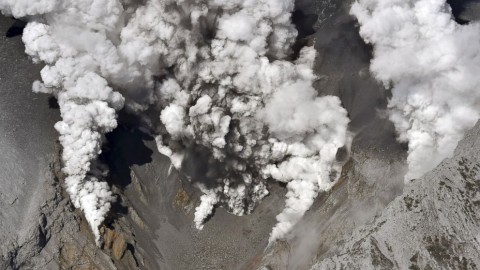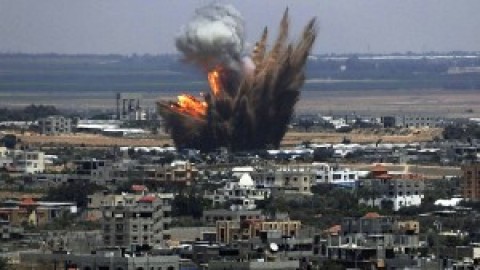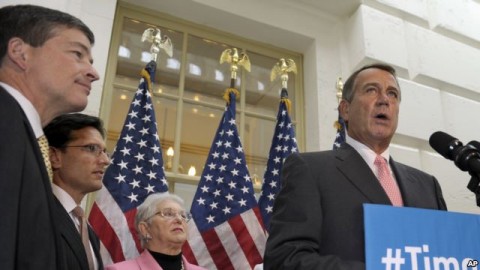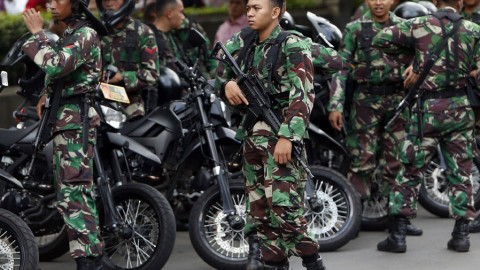34 primarily Muslim nations have come together, labeling Islamic Extremism as a ‘disease’
Saudi Arabia, an Arab nation taking action against ISIS strongholds in Syria infrequently, has announced the alliance of at least 34 basically Muslim nations in order to be able to fight various Islamic extremist groups spreading terror across the world. It’s primitive aim will be to abolish the ideology and in addition, to use force if required. The Deputy Crown Prince and Defence Minister of Saudi Arabia, Mohammed bin Salman commented, when asked about the decision, “This announcement comes from the Islamic world’s vigilance in fighting this disease so it can be a partner, as a group of countries, in the fight against this disease.”
The diplomat, talking to reporters in Paris, has not refuted the use of ground forces in the intervention, but has not necessarily confirmed it either. The Saudi Foreign Minister, Adel al-Jubeir, said, “It depends on the requests that come, it depends on the need and it depends on the willingness of countries to provide the support necessary. The decisions will be made by individual countries in terms of what to contribute, and when to contribute it, and in what form and shape they would like to make that contribution.”
Recent times have seen many Arab nations draw flak from other countries for not being proactive in the efforts against the Islamic State of Syria and Iraq ( ISIS is also known as Daesh in Arabic). While the base of the joint operations is going to be located in Riyadh, the exact nature of the operation is still quite unclear. However, distinctively, the state heads have decided to work towards better security, defence, intelligence sharing and improvisation military training and arms development. On the other hand, it is going to work passively with religious and political leaders and educators to slowly drain out the ideology of extremism through the impartation of positive values. The countries that have been confirmed so far to be a part of this scheme are: Jordan, the United Arab Emirates, Pakistan, Bahrain, Bangladesh, Benin, Turkey, Chad, Togo, Tunisia, Djibouti, Senegal, Sudan, Sierra Leone, Somalia, Gabon, Guinea, the Palestinians, Comoros, Qatar, Cote d’Ivoire, Kuwait, Lebanon, Libya, Maldives, Mali, Malaysia, Egypt, Morocco, Mauritania, Niger, Nigeria and Yemen, alongside Saudi Arabia.
With the ISIS emerging as an imminent global threat in the last year or so by claiming responsibility for attacks around the world, the Western allies led by the USA have largely advanced their operations in Syria, by carrying out bombings at least once daily. Nearly four-fifths of the military efforts have been undertaken by the States, with slight support from the UK, Australia and Canada—Russia carries out bombings against Syrian rebels primarily. Although 10 Arab countries like Saudi and Bahrain have also been part of this ongoing effort, their work has been minimal wherein countries like Bahrain, Jordan and a few others have not undertaken any air strikes and the UAE and Saudi Arabia doing so very infrequently.
For long, this inconsistency in their activity has been seen as an indication to Syria of being on its own in this fight. Said the Prince of Saudi Arabia, “Today there are a number of countries that suffer from terrorism, for example Daesh in Syria and Iraq; terrorism in Sinai, terrorism in Yemen, terrorism in Libya, terrorism in Mali, terrorism in Nigeria, terrorism in Pakistan, terrorism in Afghanistan, and this requires a very strong effort to fight. Without a doubt, there will be coordination in these efforts.” This may have become a turning point after the ISIS continuously threw threats in the way of Sunni-led Arab nations, despite it being predominantly against Shia nations like Iran, Iraq and Syria.
“ISIS doesn’t just exist in Syria and Iraq — it has major constituency supporters in almost all Arab countries, including Saudi, Kuwait, Lebanon and Jordan. So they want to really minimize the risks,” quoted Fawaz Gerges, a professor of middle Eastern Studies at the London School of Economics.
This looming risk has been known to discourage Arab nations from taking any important action, but this may change with the coalition. Even then, critics are skeptical about how far the coalition will be able to deliver.
Source: CNN








